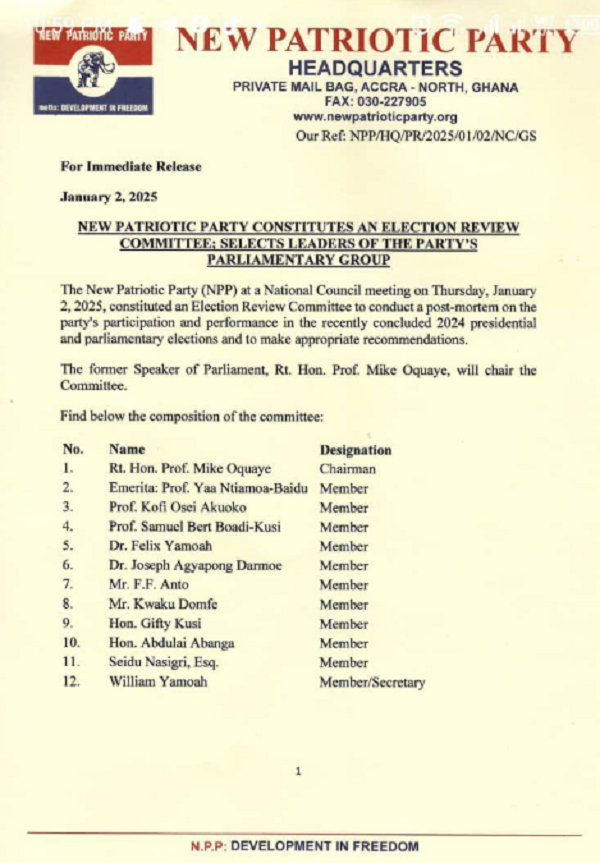Herbert Mensah receiving the National Honours and Awards 2024, from President Akufo-Addo
Renowned sports administrator and humanitarian Herbert Mensah says the prestigious Order of the Volta honour bestowed on him by President Akufo-Addo bears profound emotional significance.
While reflecting on the national award, his contributions to sports, philanthropy, and national development, and the collaborative spirit behind his success, Herbert Mensah rated the honour as a clarion call on all for greater inclusivity in recognising contributions to society.
“For me, it is a clarion call to the rest of society that we need to get greater inputs, we have great people in Ghana who are often being suppressed by those with less talent; are better connected. If we can get them on board to change every aspect of our life, and then it is that they then get rewarded so other people can see that you don’t need to have money or be a big name or be involved with a political party in order to be recognized, then that will serve as greater inspiration,” he told Myjoyonline.com in an exclusive interview.
A personal and emotional honour
“The Order of the Volta is something that I have an emotional attachment to,” Mr Mensah revealed. “It’s not something I ever thought I would receive, and over the years, I’ve never really followed awards ceremonies. I am one who reads about them in the news and then moves on.”
He acknowledged the scepticism that often surrounds national honours, particularly those influenced by political considerations, saying, “In every political dispensation, there are awardees who have served the government of the day, and therefore, people may doubt whether the recognition is truly merit-based. However, for me, this award has a deeper meaning.”
Mr Mensah spoke of his philosophy of effecting change as the driving force behind his achievements. “I’ve always looked at myself as a changemaker—someone who bucks the status quo to bring about transformation. This means that you often face conflict and criticism. But over time, people begin to see the value in what you’ve done.”
Speaking on his transformative tenure at Kumasi Asante Kotoko, he noted, “There were people who didn’t think the changes I introduced at Kotoko were necessary at the time. But years later, some of those same voices now say, ‘It was the right way.’ Change is about structure and vision, not personal recognition.”
Collaborative success
Herbert Mensah was quick to share the credit for his accomplishments, emphasising the collective efforts of those who worked with him. “This award is not just for me—it’s for everyone who has joined me on this journey. From the May 9 Disaster team to those involved in the development of rugby and football in Ghana and beyond, this recognition belongs to all of us.”
Under his leadership, Ghana Rugby evolved from modest beginnings to become a significant player on the continent, a fact duly acknowledged in the citation accompanying his award, a journey he says has seen many, many collaborators.
“The journey has taken us from being overlooked to now holding positions like President of Rugby Africa and serving on the Executive Board of World Rugby. It’s not about me; it’s about everyone who contributed to that progress.”
Mr Mensah also touched on his philanthropic work, including initiatives such as the Hole in Heart Foundation, through which he said over 100 life-changing heart surgeries for children have been done in just two years.
This award is also for those who made that possible, from administrators like Erica Amoako to doctors like Etsuah Mensah and his team, he said.
He expressed gratitude to long-time collaborators, including King Edward, Sakut, and others who have championed the May 9 Disaster efforts. “This recognition extends to charities like Aunty Mavis’ work with the disabled and all those who have joined us in changing lives.”
“In Ghana, we have incredible people who often go unrecognised because they lack connections or resources. This needs to change. Abroad, we see ordinary citizens—nurses, teachers, firemen—celebrated for their transformative impact on communities. Ghana can adopt this approach to inspire more people to make a difference.”
Reflecting on the familial significance of the award, Mr Mensah noted, “Many years ago, I accepted a similar honour on behalf of my late father. To now receive the Order of the Volta myself, with my family present, including my sister Barbara Mensah, a trailblazing judge, and my cousin, Professor Nyarko, is deeply meaningful.”
Mr Mensah expressed his gratitude to the Ghanaian state and the President for recognising his efforts. “I am honoured and grateful, but this is not about me—it’s about the lives we’ve changed together. This award is a testament to what we can achieve collectively when we strive for excellence and transformation.”
Below is the citation that came with his award.
You are an exceptional leader whose illustrious career has spanned over three decades, marked by extraordinary dedication, vision, and service with unparalleled contributions to national development as a trailblazer in sports administration, business innovation, and humanitarian service. Your impact has been profoundly felt, with lives touched and generations inspired.
Your tenure as Chairman of Asante Kotoko Sporting Club was transformative. Through your visionary leadership, you redefined sports administration in Ghana, introducing modern management systems, instilling discipline, and fostering a winning mentality. Your efforts not only elevated the club’s stature but also laid a foundation for professionalism in Ghanaian sports. A legacy that continues to inspire excellence.
You have significantly transformed Ghana Rugby since your appointment as President of the Ghana Rugby Football Union (GRFU) in 2014. You prioritised building a robust infrastructure for the sport, beginning with a comprehensive assessment of the state of rugby in Ghana and consultations with global stakeholders, including World Rugby and Rugby Africa. Your leadership saw the establishment of the first professionally run Ghana Rugby Club Championship (GRCC), which became a cornerstone for achieving full membership in World Rugby in 2017.
Under your visionary leadership, Ghana Rugby has achieved remarkable milestones, including the Ghana Eagles’ victory in the Africa Men’s 7S Championship and accolades in the Africa Rugby “Africa Cup West” tournament. Your dedication to advancing the sport has seen the introduction of training programs, high-level competitions, corporate sponsorships, and initiatives like “get into rugby” to promote women’s participation. Recognised for your innovative approach, Ghana Rugby won Rugby Africa’s “Best Communication Strategy” award in 2019, and you earned positions on the Africa Rugby Executive Committee and as President of Rugby Africa in 2023, Championing rugby as a tool for development and excellence across the continent.
Beyond sports, economic empowerment and innovation have been significantly advanced by your entrepreneurial pursuits leading the cellular phone industry in Africa, Ghana Gateway Project and other media channels. Opportunities for countless individuals were created through your ventures, while a notable contribution to Ghana’s economic landscape was made. A seamless integration of business and social responsibility has been consistently demonstrated, reflecting a commitment to a holistic approach to development
In moments of national crises, hope and relief have been provided through your humanitarian interventions. Support for disaster relief and the underprivileged has been rendered with deep compassion and unwavering resolve. These efforts have alleviated suffering and inspired a culture of giving and shared responsibility.
Mr. Herbert Amponsah Mensah, you are celebrated as a Leader, Mentor, and patriot whose example of excellence, resilience, and selfless service remains enduring. Your remarkable achievements and legacy are recognised as a source of pride and inspiration for the people of Ghana.
On this occasion, under the distinguished leadership of His Excellency, the President of the Republic of Ghana, profound gratitude and admiration are extended to you. Your contributions are acknowledged as an enduring testament to the transformative power of vision and dedication.
DISCLAIMER: The Views, Comments, Opinions, Contributions and Statements made by Readers and Contributors on this platform do not necessarily represent the views or policy of Multimedia Group Limited.



































![[DOWNLOAD MOVIE] A Boy Called Sailboat (2018) [DOWNLOAD MOVIE] A Boy Called Sailboat (2018)](https://www.ghanamma.com/wp-content/uploads/2025/01/db8b80651f69dae6367025e1fc5cdbd0.jpg)




![Arsenal midfielder Thomas Partey [R] and his coach Mikel Arteta Arsenal midfielder Thomas Partey [R] and his coach Mikel Arteta](https://cdn.ghanaweb.com/imagelib/pics/312/31292510.295.jpg)










































